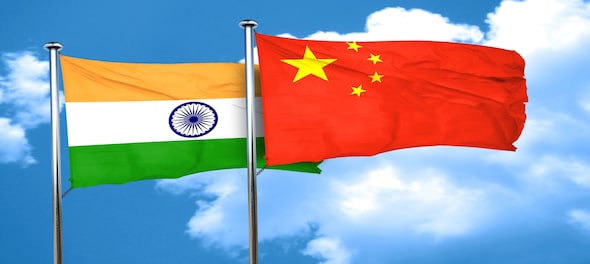
Just before the 18th Heads of State and Government Summit of the Group of 20 (G20) which will take place in September 2023 in New Delhi, a geopolitical storm has intensified around China owing to multiple reasons. India, the host of the gathering, will have to brace up to navigate through the troubled geopolitical waters.
On August 29, China released the 2023 edition of its ‘standard map’ which incorporated Arunachal Pradesh, the Aksai Chin region, Taiwan and the disputed part of South China Sea in it. “Map is compiled based on the drawing method of the national boundaries of China and various countries in the world,” stated the Global Times, Chinese Communist Party's mouthpiece.
In response, India lodged a strong protest and both countries' diplomatic forces locked horns. Philippines and Malaysia too jumped into the fray and rejected the dragon's move.
While Beijing was smirking over its provoking move, a news popped up from Northwestern Europe that led the country to breath fire. For the first time ever, the British parliament referred to Taiwan as an ‘independent country’ in an official document. This was just ahead of Foreign Secretary James Cleverly’s visit to China later this week.
"Taiwan is already an independent country, under the name Republic of China,” said the report. It further added that Taiwan possesses all the qualifications for statehood, including a permanent population, a defined territory, government, and the capacity to enter into relations with other states — it is only lacking greater international recognition.
The Committee Chairperson Alicia Kearns, from the ruling Conservative Party went further and told POLITICO, “We acknowledge China’s position, but we (the foreign affairs committee) do not accept it.” Cleverly mentioned that he believed China genuinely cared about the UK's views on human rights, following his meetings with China’s vice-president, Han Zheng, and foreign minister, Wang Yi.
“We are clear-eyed about the areas where we have fundamental disagreements with China and we raise those issues when we meet … But I think it’s important to also recognise that we have to have a pragmatic, sensible working relationship with China because of the issues that affect us all around the globe,” The Guardian quoted him.
While adding to the dragon’s woes, on August 30th, the Biden administration approved military aid to Taiwan under Foreign Military Financing (FMF), a program normally used for ‘sovereign states.’
According to the Reuters, the notification sent to Congress informs congressional committees of the State Department's intention to obligate up to $80 million in FMF funds in support of Taiwan.
"These weapons will not only help Taiwan and protect other democracies in the region, but also strengthen the United States’ deterrence posture and ensure our national security from an increasingly aggressive CCP (Chinese Communist Party)," said Representative Michael McCaul, Republican chairman of the House of Representatives Foreign Affairs Committee, quoted Reuters.
In spite of the fact that such developments are not new in international politics, they can have significant implications at the G20 summit, which needs to be assessed beforehand by New Delhi.
“Considering China’s current economic posture, it is not in a condition to go beyond protesting about the UK’s comments and the US’ decision,” believes Dr Rajiv Gupte, Distinguished Fellow, Forum for Integrated National Security (FINS). He added that Beijing might try to create pressure but nothing more than that.
Whereas regarding the provocation about Arunachal Pradesh ahead of G20, he thinks that irrespective of the summit’s dates China would have done these changes in the map. But such decisions just 10 days before a major international gathering create a stronger impact than usual. “They will routinely keep doing it,” he says.
Reuters reported that amidst this contention, Chinese President Xi Jinping is anticipated to skip the G20 meeting in New Delhi. Chinese Premier Li Qiang might be a fill-in on the president's behalf.
Dr Gupte mentions that this is measurely to avoid engagement and also due to the internal problems. Financial Times in its ‘Xi Jinping to skip G20 summit in India, western officials say’ wrote that Xi’s absence would be seen as a setback for India and also kill hopes of meeting with its American counterpart.
After taking office in 2013, Beijing’s President has attended all the G20 conferences.
“China doesn’t want India to have a successful G20 — it’s that simple,” Indrani Bagchi, chief executive of the Ananta Aspen Centre, an Indian think-tank, told Financial Times. It took India a while to realise that its rise would be opposed tooth and nail by Beijing, he added.
To sum up, India faces the challenge of maintaining a delicate balance between cooperation and principled stances. The G20 Summit will not only focus on economics but will also test diplomacy's role in navigating these intricate geopolitical challenges.
Check out our in-depth Market Coverage, Business News & get real-time Stock Market Updates on CNBC-TV18. Also, Watch our channels CNBC-TV18, CNBC Awaaz and CNBC Bajar Live on-the-go!


Supreme Court dismisses plea seeking postponement of CA exams; details here
Apr 29, 2024 2:29 PM
Just 8% women candidates contested first two phases of Lok Sabha polls
Apr 29, 2024 12:00 PM
The sexual assault case against Prajwal Revanna — here's what we know so far
Apr 29, 2024 11:36 AM
Repolling underway at one polling booth in Chamarajanagar LS segment in Karnataka
Apr 29, 2024 10:32 AM

